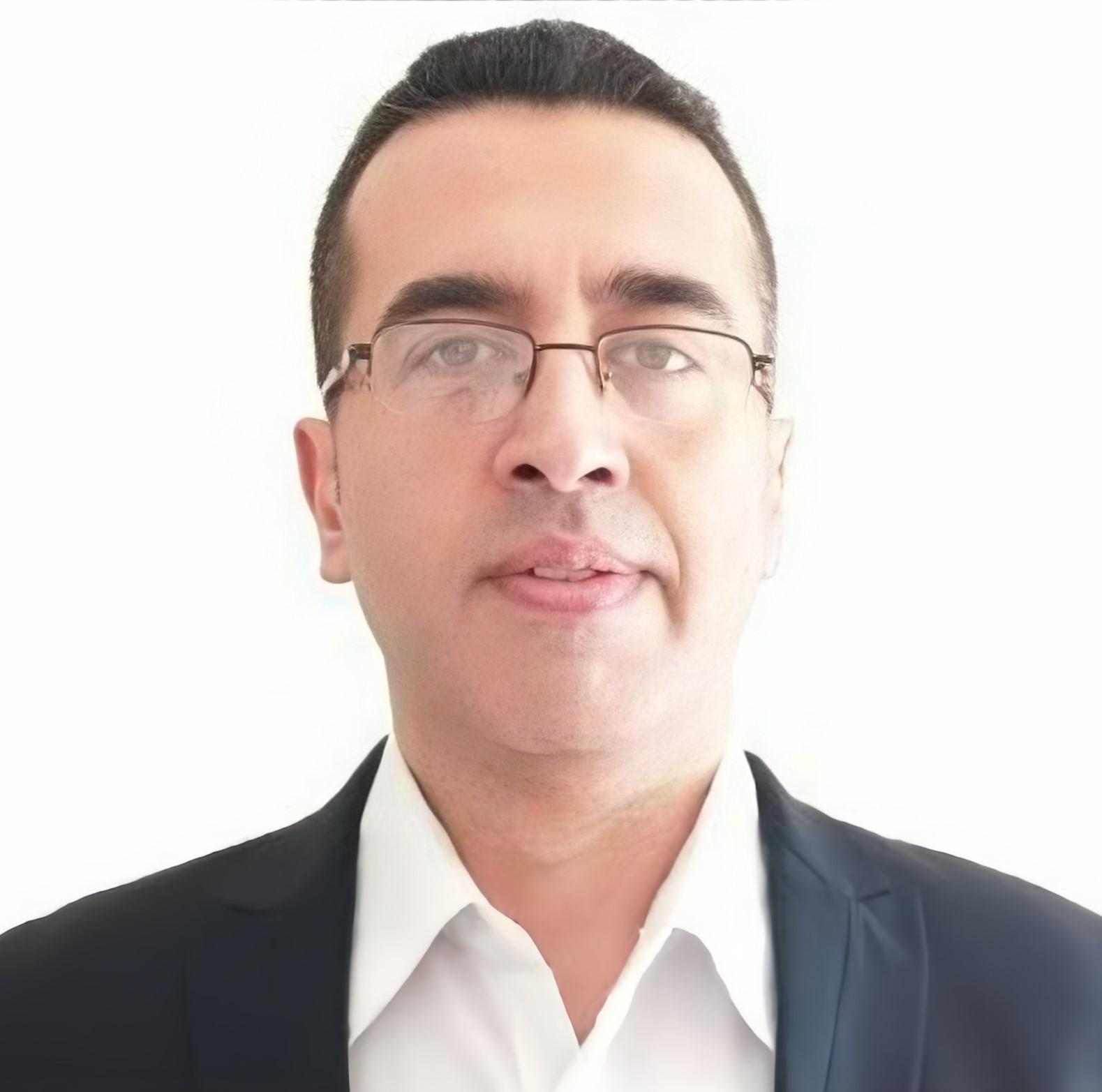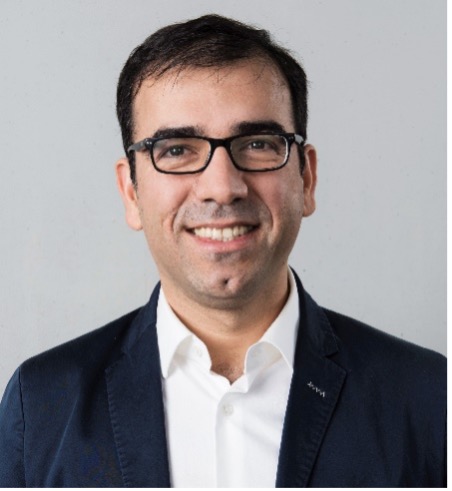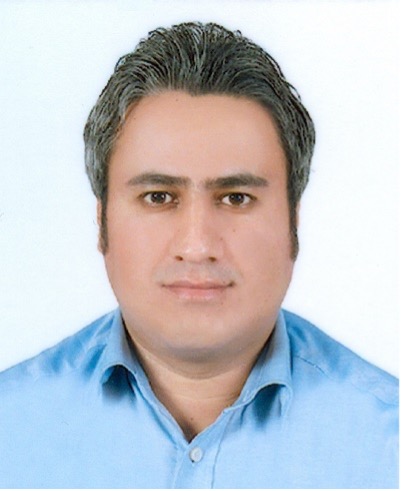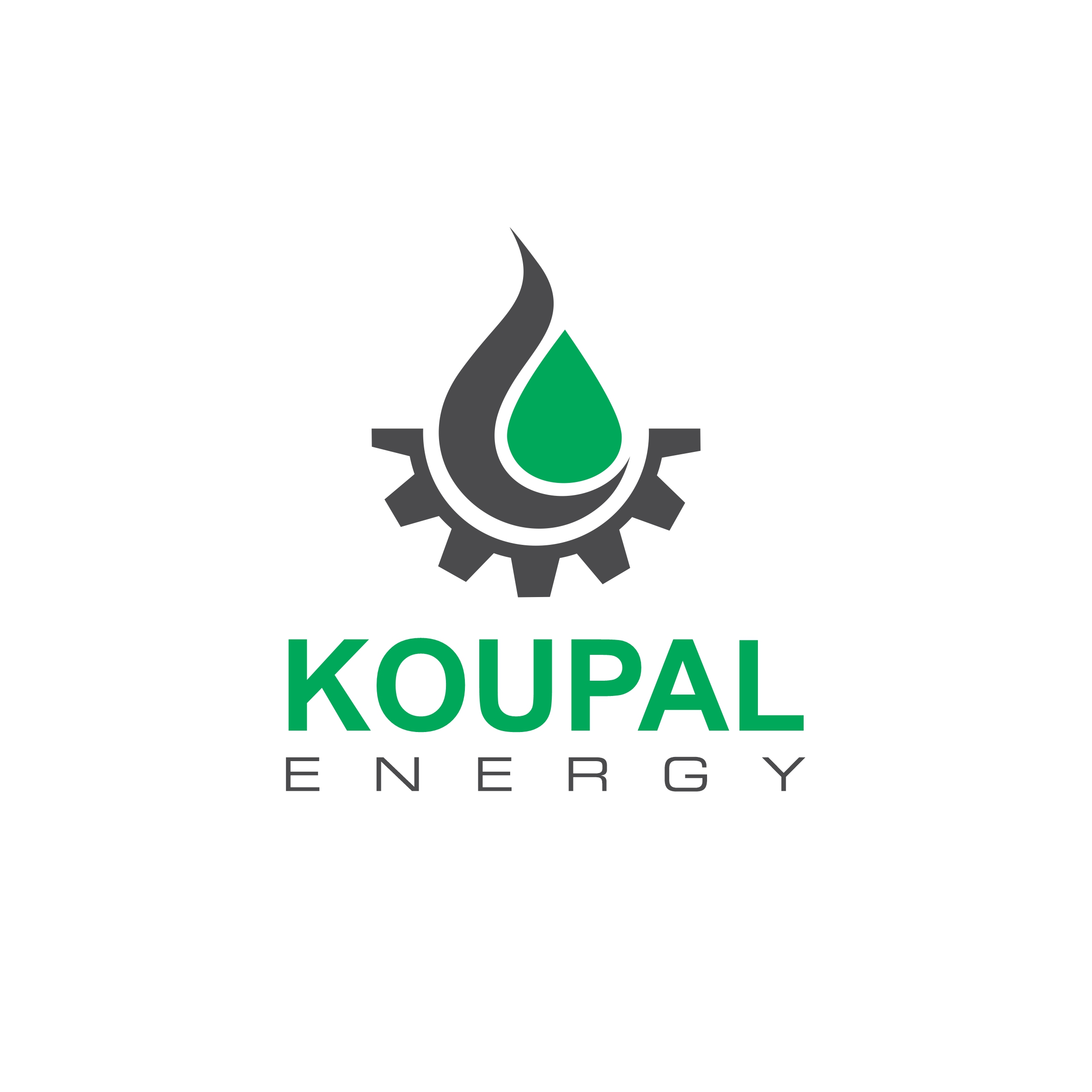Workshop #1
Exploring the Potential of Energy Piles in Industrial Applications
Event Date: September 24, 2024
Time: 15:00-16:00
Venue: Conference Room at the New Mechanical Engineering Building
Registration Fee: Free
Instructor:
 Assistant Professor Amir Akbari Garakani
Assistant Professor Amir Akbari Garakani
Niroo Research Institute, Iran
About the Workshop:
The impending depletion of fossil fuel resources and the environmental degradation caused by the pollutants generated from their utilization have necessitated the employment, development, and application of renewable energy sources. Geothermal energy, as one of the renewable energy sources, has played a significant role in the development of countries around the world, and in Iran, it is considered one of the most suitable renewable energy sources to potentially replace fossil fuels. Energy piles, a type of structural pile installed beneath the foundation of a structure, incorporate heat exchange pipes within their body, allowing for the absorption and transfer of the Earth's thermal energy by the fluid circulating within these pipes. Essentially, energy piles serve a dual purpose: they function as load-bearing structural members and as an intermediary for harnessing geothermal energy. By employing energy piles, in addition to conserving and stockpiling fossil fuels, their utilization for cooling and heating purposes in the industry can be realized, while simultaneously preventing the release of environmental pollutants that would otherwise result from the combustion of fossil fuels.
In this workshop, the focus will be on the practical usages of energy piles, with discussions on the following subjects:
1) An introduction to energy piles
2) Geotechnical, structural, and mechanical aspects in implementing energy piles
3) An introduction to the Geo-Energy Structures Laboratory at NRI
4) Industrial potentials for using energy piles
Biography of Instructor:
Dr. Amir Akbari Garakani is an assistant professor of geotechnical engineering at Niroo Research Institute, Iran, where he is a geo-energy and geotechnical research leader, idea developer and manager of the research programs and projects. He is also an invited lecturer at some universities and research centers, a registered SENIOR-LEVEL professional engineer and a national project manager in Iran. Born in 1981 in Tehran, Amir received his B.Sc. in civil engineering and his M.Sc. and Ph.D. in geotechnical engineering from Sharif University of Technology in 2003, 2005 and 2013, respectively. For the first time in Iran, he has started to build up a full-scale energy pile system, designed and manipulated a full-controlled unsaturated triaxle test device, a self-adjustable offshore drilling platform equipped with passive heave compensation system and a tension leg platform for offshore geotechnical drilling works. Recently, Amir has established the Research Laboratory of Energy Geo-Structures (RLEGS) at the Niroo Research Institute. His main research areas are geothermal foundations, unsaturated soil mechanics, land subsidence, and developing constitutive models, marine geotechnics and structures, numerical modeling, soil improvement, foundation engineering and earth dams. So far, he has published and presented over 60 technical papers in different journals and international conferences, and prepared over 500 engineering reports.
Workshop #2
Embark on Your Funding Journey
Event Date: September 25, 2024
Time: 13:45-15:15
Registration Fee: free (for InterPore participants) / 100000 T (conference course only)
Venue: Online Presentation, Conference Room at the New Mechanical Engineering Building
Instructor:

Professor Nima Shokri
Hamburg University of Technology, Germany
About the Workshop:
"Persuasive Grant Writing" is your guide to using narrative tools that resonate with your funders. Elevate the quality of your grant applications, align your proposals with funder objectives, and apply narrative tools to make your applications more informative and persuasive.
Key Learning Points:
• Craft winning grant applications
• Create effective project budgets
• Design impactful projects
• Uncover the secrets of successful grant revisions
Who Should Attend:
Anyone eager to master the art of finding and applying for grants! Whether you're a student, a Ph.D. or postdoc, or an early-career researcher, this workshop is tailored just for you.
Workshop #3
Patenting or Publishing
Event Date: September 24, 2024
Time: 11:00-12:00
Venue: Conference Room at the New Mechanical Engineering Building
Registration Fee: Free
Instructor:

Assistant Professor Hojjat Mahani
Nuclear Science and Technology Research Institute, Iran
About the Workshop:
Academic researchers often face a dilemma when deciding whether to publish their new research as patents or articles, as the choice between the two options is influenced by various factors that may not always be clear to those in academia. This workshop covers a range of topics, such as the reasons for publishing research papers, the definition and purpose of patents, the requirements for patent eligibility and patentability, the process of patent examination, the differences between authors and inventors, reviewers and examiners, as well as papers and patents. Additionally, the workshop explores the importance of the claim in patents, common reasons for patent rejections, current challenges in the field, provides two examples, and offers a list of 20 points to consider when making the decision between patenting and publishing.
Biography of Instructor:
Dr. Hojjat Mahani was born in 1986 in Esfahan, a city in Iran known for its tourism and rich history. In 2008, he completed his BSc in Electrical Engineering and then earned an MSc in Medical Radiation Engineering from Shiraz University in 2011. In 2017, Hojjat obtained his PhD in Medical Radiation Engineering from the Nuclear Science and Technology Research Institute (NSTRI). Dr. Mahani is a dedicated researcher focusing on tomographic reconstruction, deep learning in medical physics, and Monte Carlo modeling of imaging scanners. Additionally, he is actively involved in state-of-the-art industrial and security X-ray imaging. Hojjat has served as a scientific reviewer for various peer-reviewed journals. He has published over 30 journal articles, 60 conference records, and 2 US patents. As the principal investigator, he leads multiple research projects that have received funding at the national and international levels. Hojjat currently holds the position of assistant professor at the NSTRI, where he heads the Imaging Devices Lab. Dr. Mahani is also a member of the Innovation and Patent Examination Committee at the NSTRI.
Workshop #4
Rock 3D Digital Imaging, digital core analysis, and artificial intelligence applications at the pore scale
Event Date: September 23, 2024
Time: 8:00 - 12:00 (theory) and 13:45-14:45 (micro-CT scanner lab tour)
Location: Institute of Petroleum Engineering, Classroom 105
Registration Fee: 100000 T (for InterPore participants) / 300000 T (conference course only)
Instructors:
 |  |  |
Hossein Ghadiri, PhD
| Jafar Qajar, PhD
| Saeid Sadeghnejad, PhD
|
Associate Professor, Medical Physics & Biomedical Engineering Department Advanced Medical Technologies & Equipment Institute (AMTEI) Tehran University of Medical Sciences | Sciences Associate professor of Petroleum Engineering, Shiraz University, Iran Postdoctoral researcher, Department of Earth Sciences, Utrecht University, The Netherlands | Associate professor of Petroleum Engineering, Tarbiat Modares University, Iran |
This workshop consists of three presentations and a laboratory visting tour of a micro-CT scanner apparatus. The covered topics include:
- Physics, instrumentations, and applications of micro-CT scanners (Dr. H. Ghadiri)
- Imaging techniques to understand pore-scale processes (Dr. J. Qajar)
- Applications of machine learning in digital rock physics workflow (Dr. S. Sadeghnejad)
- Micro CT-scanner apparatus lab tour (Dr. H. Ghadiri)
About the Workshop
Section 1: Physics, instrumentations, and applications of Micro-CT scanners
This workshop introduces the basic physics, instrumentations and applications of Micro-CT scanners. Micro-CT provides micron-sized high-resolution 3D imaging information that cannot be obtained with other non-destructive technologies. This 3D reconstruction allows the user to see inside the object without destroying the structure and produces contrast between different material types depending upon their relative composition and density. This 3D imaging information are used to quantify material characteristics such as porosity, used as input for numerical models, or are simply being used to gain better understanding of the interior of a sample
Section 2: Imaging techniques to understand pore-scale processes
Dynamic processes such as fluid flow, reactive transport, mineral precipitation, mass transport, and biological activity interact within porous rocks, regulating their macroscopic behavior. These processes are significantly influenced by the rock's mineralogy, pore structure, and environmental conditions. A variety of imaging techniques, such as scanning electron microscopy, laser confocal microscopy, and X-ray computed tomography, have been used to investigate these dynamic pore-scale processes in porous geomaterials. These tools provide valuable insights into the mechanisms occurring within the pores. Understanding these processes through pore-scale imaging and modeling is crucial for accurately predicting the macroscopic behavior of materials. This course briefly introduces a selection of imaging techniques and their potential applications with examples from various experiments related to the visualization and characterization of dynamic pore-scale processes in porous media.
Section 3: Applications of machine learning in digital rock physics workflow
This workshop investigates into the synergy between machine learning techniques and digital rock physics (DRP) workflow, offering a comprehensive exploration of concepts and applications. The fusion of deep learning methodologies with DRP not only enhances the efficiency of estimating porous media properties but also accelerates the process significantly. The implementation of deep learning is showcased across various applications at the pore scale, encompassing image segmentation (e.g., two-phase (pore-solid) or multimineral segmentation), rock property estimation (regression of single or multiphase properties), image resolution enhancement, and porous media reconstruction. Participants in this course not only gain proficiency in the DRP workflow but also acquire a thorough understanding of the diverse applications of machine learning within this framework. The curriculum spans a broad spectrum, ranging from pore-scale imaging through µ-CT scanning to predicting pore-scale properties using DRP. The course explores the latest advancements in pore-scale studies driven by deep learning methods, providing participants with insights into cutting-edge developments in the field.
Biography of Instructors:
Dr. Hossein Ghadiri holds a BSc in electronic engineering, MSc in medical radiation engineering, PhD in medical physics, and currently associate professor in department of medical physics and biomedical engineering, Tehran University of Medical Sciences. His activities mainly focus on digital imaging technology and advanced image processing & analysis. He has done extensive research on the applications of artificial intelligence in digital imaging. Hossein is the founder of Phoenix, a startup focused on AI-based image analysis software packages, and is also the director of the Advanced X-ray Imaging Laboratory (AXIS) at the advanced medical technologies and equipment institute. He is also the CEO of a knowledge-based company that manufactures advanced X-ray imaging systems such as micro-CT machines and C-arms equipment.
Dr. Jafar Qajar is an Associate Professor in School of Chemical and Petroleum Engineering at Shiraz University. He is currently on sabbatical leave, working as a researcher at the Department of Earth Sciences at Utrecht University, the Netherlands. Dr. Qajar has over ten years of research experience in the field of digital rock physics, computational rock physics, and micro-CT imaging and flow experimentation from the University of New South Wales, the Australian National University, and Shiraz University. His primary interest lies in combining high-resolution 2D/3D/4D imaging technology and physical-biochemical flow and transport in porous media, particularly porous rocks. Qajar holds a BSc in petroleum engineering from the Petroleum University of Technology, Iran, a master's degree in chemical engineering from Shiraz University, and a PhD in petroleum engineering from the University of New South Wales, Australia.
Dr. Saeid Sadeghnejad is currently an associate professor of petroleum engineering at Tarbiat Modares University (TMU), Iran. He received his BSc. from the Sharif University of Technology in 2004 and his MSc and PhD degrees in Petroleum Engineering from the same university in 2006 and 2011, respectively. He worked as a reservoir engineer at various fields including, field development plans (MDP) and core analysis (CCAL SCAL). Moreover, from 2009 to 2014, Saeid served as the head of MAPSA technology center (MTC), engaged in developing upstream petroleum software packages. Saeid has more than 15-year experience in consulting core and PVT analyses in different companies. Saeid also was the head of department of petroleum engineering at TMU (2017-2019). He received the Alexander von Humboldt fellowship for experienced researchers at the Johannes Gutenberg University of Mainz, Germany on digital rock physics and core analysis (2020-2022).




